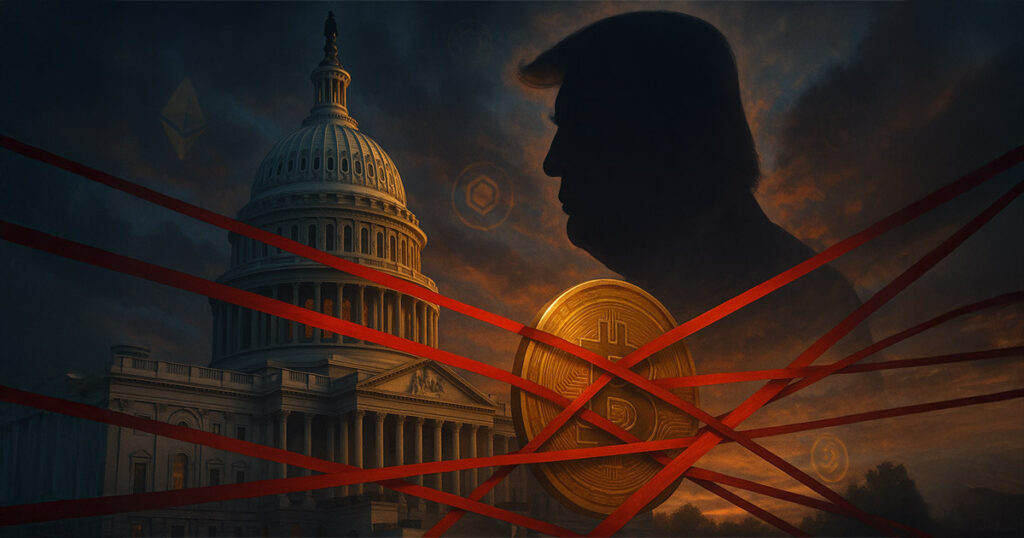Discussions surrounding the potential conflict of interest arising from U.S. President Donald Trump’s involvement in the crypto asset space have been a hot topic in recent days. These concerns have not only hindered the progress of stablecoin legislation but have also impacted broader crypto policy discussions. Ryan Gilbert, the founder of fintech venture capital fund Launchpad Capital, expressed his disappointment to CNBC, saying, “It’s unfortunate that personal business is getting in the way of good policy…I would hope that everybody in the administration, including the president, gets out of the way of good policy.”
The stablecoin legislation, known as the Guiding and Establishing National Innovation for U.S. Stablecoins (GENIUS) Act, was designed to establish a regulatory framework for U.S. payment stablecoins. Despite being perceived as legislation that would pass easily, the bill failed to secure enough votes in the Senate on Thursday, with a close 48-49 outcome. This setback was disheartening for many, including Katrina Paglia, the chief legal officer at venture capital firm Pantera Capital, who was not surprised by the outcome.
The ethical concerns surrounding Trump’s profits from his crypto assets and ventures have cast a shadow over discussions about the draft U.S. crypto market structure bill, which was slated for review on May 6. The market structure bill aimed to provide much-needed regulatory clarity by outlining how the Securities and Exchange Commission (SEC) and the Commodity Futures Trading Commission (CFTC) would classify and oversee digital assets.
A series of events have fueled the conflict of interest concerns surrounding Trump’s involvement in the crypto space. Shortly before his inauguration, Trump launched the official $TRUMP memecoin, which saw a sharp price increase to $75 on Jan. 19. However, the price of $TRUMP plummeted post-inauguration, leading to losses for small investors while Trump-linked companies reaped significant trading fees. Reports emerged in March suggesting that Trump family representatives were considering acquiring a stake in the U.S. arm of Binance, a major crypto exchange that had faced legal issues related to anti-money laundering laws.
The sequence of events continued with the Senate Banking Committee passing the GENIUS Act on March 13, followed by the announcement of World Liberty Financial’s plan to launch its stablecoin, USD1, on March 25. Subsequently, an investment by Abu Dhabi-based investment giant MGX into Binance was revealed, with WLF playing a role in facilitating the transaction. Reports of Trump inviting top memecoin holders to a private dinner and insider trading allegations further intensified concerns around potential conflicts of interest.
The past week has seen tensions escalate regarding what some have labeled as ‘Trump’s corruption’ in the crypto space. Efforts to pass the GENIUS Act were met with resistance from Senate Democrats who raised national security and money laundering concerns. Congresswoman Maxine Waters used a hearing to denounce Trump’s alleged profiting from his crypto ventures, accusing him of prioritizing personal gain over public welfare. Subsequent efforts to introduce legislation to curb potential corruption in the crypto space have been met with mixed reactions.
Despite the challenges and controversies surrounding Trump’s involvement in the crypto asset space, lawmakers from both parties are working to address the conflict of interest concerns and push forward with regulatory initiatives. The future of the GENIUS Act remains uncertain, but there is a shared goal among lawmakers to ensure that policies are in place to regulate the crypto industry effectively. The ongoing discussions highlight the complex interplay between politics, finance, and technology in the evolving landscape of digital assets.

